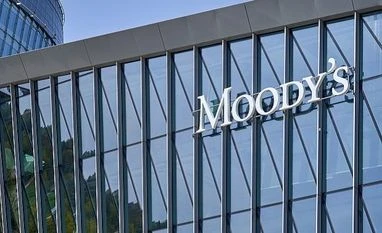Higher risk weight on unsecured bank loans credit positive: Moody's
The Reserve Bank last week raised risk weights on unsecured retail loans, credit cards and lending to non-banking finance companies (NBFCs) by 25 percentage points
)
Moody's said unsecured loans have been growing rapidly in the past few years, exposing financial institutions to a potential spike in credit costs in case of sudden economic or interest rate shocks | Photo: Shutterstock
Listen to This Article
The RBI's decision to tighten norms for unsecured personal loans is credit positive because lenders will need to allocate higher capital for such loans, thus improving their loss-absorbing buffers, Moody's Investors Service said on Monday.
The Reserve Bank last week raised risk weights on unsecured retail loans, credit cards and lending to non-banking finance companies (NBFCs) by 25 percentage points.
Moody's said unsecured loans have been growing rapidly in the past few years, exposing financial institutions to a potential spike in credit costs in case of sudden economic or interest rate shocks.
The tightening of underwriting norms through higher risk-weighted assets is credit positive because lenders will need to allocate higher capitals for such loans improving their loss-absorbing buffers and may dampen their growth appetite, Moody's said in a statement.
It said that over the past few years, India's unsecured lending segment has become very competitive, with banks, NBFCs and financial technology (fintech) companies, including several new entrants, aggressively growing loans in this category.
Also Read
In the past two years, personal loans grew around 24 per cent and credit card loans rose 28 per cent on an average compared with the overall banking sector's credit growth of around 15 per cent, Moody's said.
We expect banks would be able to absorb higher risk weights on their capital because the overall banking sector's exposure to unsecured retail credit is small at around 10 per cent of loans as of September 2023 and the sector's overall capitalization is at historically high levels with a Common Equity Tier 1 ratio of 13.9 per cent as of March 2023, Moody's said.
However, the impact of the new underwriting rules could vary among individual lenders depending on their exposure to unsecured loans, it added.
Last week, US-based S&P Global Ratings had said that the RBI's decision to tighten norms for unsecured consumer credit is likely to hit banks' capital adequacy by 60 basis points.
The move could lead to higher lending rates, lower credit growth and increase the need for capital raising among weak lenders, it added.
More From This Section
Don't miss the most important news and views of the day. Get them on our Telegram channel
First Published: Nov 20 2023 | 1:30 PM IST


